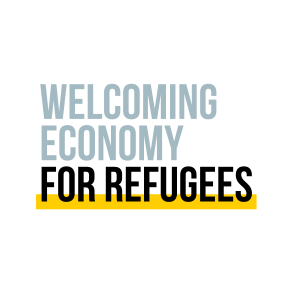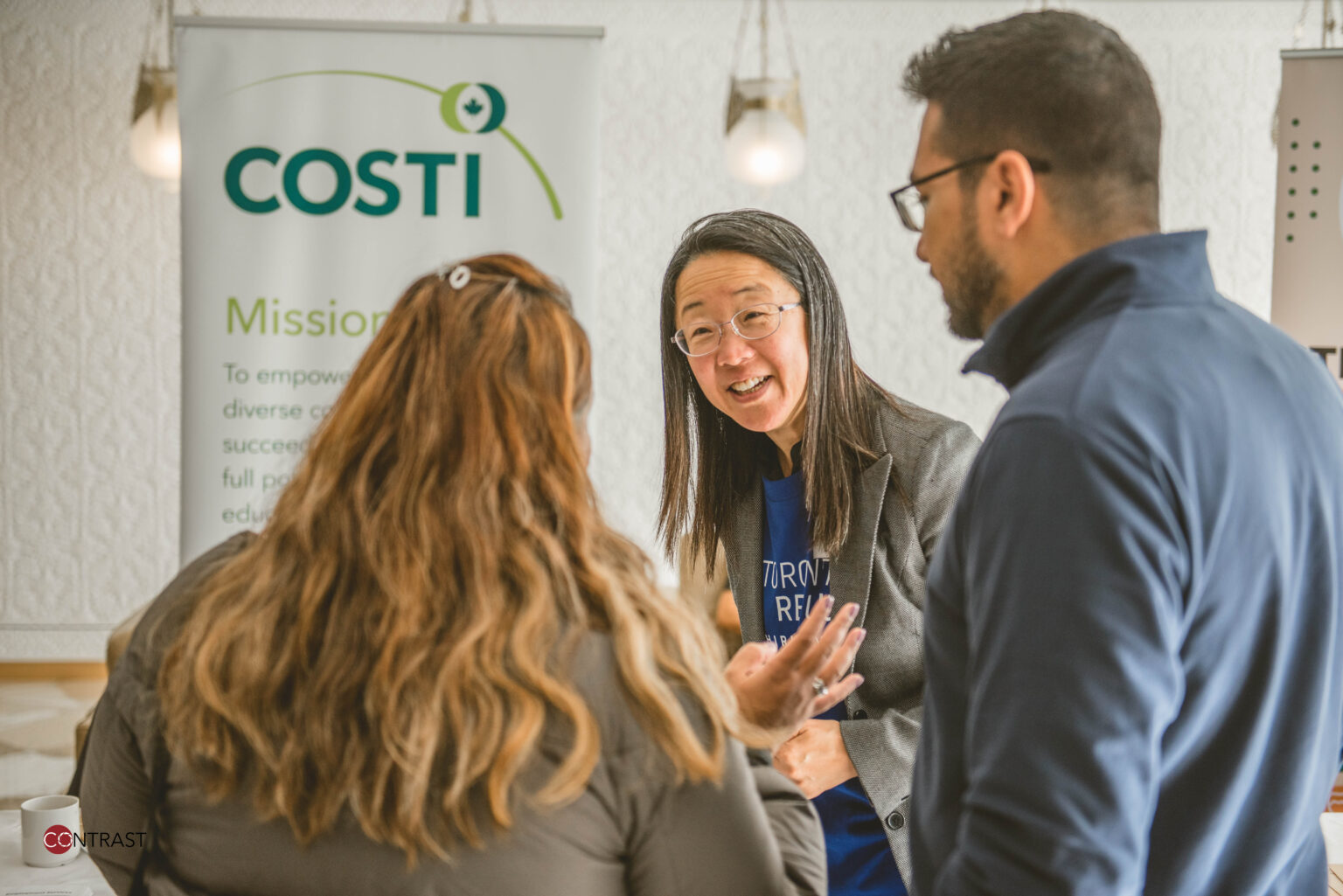A decade ago, a multi-sector roundtable convened in the Greater Toronto and Hamilton Area to address a critical question: How could Canada’s growing population of forcibly displaced Syrian refugees access meaningful employment in their new home country?
Representing 40 organizations, this group sought to bridge the gap between refugees and the jobs that matched their skills and talents, tackling a critical issue: underemployment among newcomers.
Under Senator Ratna Omidvar’s leadership, the coalition expanded its scope to support employment outcomes for all forcibly displaced individuals and eventually evolved into a revitalized Refugee Jobs Agenda Roundtable in 2021. Now a national coalition of more than 150 members, the Roundtable organizes hiring events, launches public awareness campaigns, and creates practical employer action guides, among other initiatives, to connect employers with refugee talent.
New Leadership, Renewed Focus
The Roundtable recently welcomed new leadership as the Honourable Andrew Cardozo joined Rashmi Vohra (TD Bank) and Jim Estill (Danby Appliances) as co-chair. Cardozo brings extensive experience advancing policy conversations about immigration, multiculturalism, and the future of work in Canada.
“Focusing on hiring refugees is not only helpful to newcomers […] We’ve seen many examples where employers directly benefit as well,” Cardozo remarked during the first quarter Refugee Jobs Agenda Roundtable meeting. “We’re heading into a very uncertain time for the Canadian economy […] The work of the Roundtable has grown more important than ever before.”
Refugee Talent: A Workforce Solution
Refugee workforce inclusion could help address Canada’s labour shortages. Demand for workers currently outpaces supply in critical sectors like health care and manufacturing. In 2024, some of the most significant staffing shortages were in occupations requiring licensure or certification. Yet, qualified immigrants and refugees often face barriers to working in their fields. For example, internationally trained health professionals may be forced into entry-level roles like Personal Support Worker (PSW) despite holding advanced qualifications—all while health care job vacancies in Canada remain at nearly double pre-pandemic levels.
Impact at a Glance: Refugees and the Canadian Workforce
▸ Refugees contribute to tax revenue, boost innovation, and enhance productivity, benefiting the broader economy.
▸ Forty-eight (48) percent of refugees settle in smaller cities and towns, where they help fill critical labour gaps.
▸ Refugees often create jobs by starting businesses, contributing to local economic growth.
▸ Many refugees face skill underutilization, with highly qualified professionals often working in low-skilled jobs because of credential recognition barriers.
▸ Refugees with health care training have the potential to alleviate staffing shortages in the health care sector.
To help close this gap, the Roundtable developed the unique Refugee Hiring Event model, which matches pre-screened refugee applicants with employers who have open roles to fill, resulting in on-the-spot hires or follow-up interviews. This approach has proven to be 13 times more effective than traditional job fairs in several Canadian communities. Looking ahead, the Roundtable will organize a series of Host Your Own training workshops, supplemented by an action guide. In the 2024 edition of this training series, 68 organizations expressed interest in replicating the model in their cities.
“This action-oriented model is both an innovative modern dovetail with Canada’s history of welcoming and integrating refugee talent into its fabric of economic growth, and a clarion call that other Canadian organizations can mirror in their own backyards.” said Darrell Pinto, Director of Employment at Jumpstart Refugee Talent and a key Roundtable and Hiring Event coordinator.
Driving the Conversation: The #WelcomingEconomy Campaign
The Roundtable has also spearheaded the #WelcomingEconomy communications campaign, which amplifies the economic and social contributions of refugees to Canadian businesses and communities. The initiative offers evidence and insights from business leaders to encourage the recruitment of refugee talent. In 2024, 83 organizations participated, including employers and business associations. After three increasingly successful iterations, organizers hope the campaign becomes a vital resource for employers nationwide. Its companion website, Welcoming Economy for Refugees, features a growing repository of tools for employers looking to engage refugee talent.
“Hiring refugees offers businesses tangible benefits, including higher retention rates and enhanced recruitment, as satisfied refugee workers often refer others to the company. Employers also experience increased creativity and productivity,” said Daniel Cervan-Gil, Associate Director of Employer initiatives at WES and Strategic Coordinator of the Refugee Jobs Agenda Roundtable. “By integrating refugees into their workforce, Roundtable employer partners not only make a smart move but also play a crucial role in strengthening communities and transforming lives.”
A Call to Action
Following a pivotal federal election in Canada, keeping immigration and economic inclusion at the forefront of the national conversation is more important than ever. The Refugee Jobs Agenda Roundtable remains committed to this mission, continuing to build on 10 years of successfully supporting meaningful refugee employment.
To learn more about the Roundtable and explore opportunities to join the network, visit the Welcoming Economy for Refugees website and sign up to be a campaign partner.

